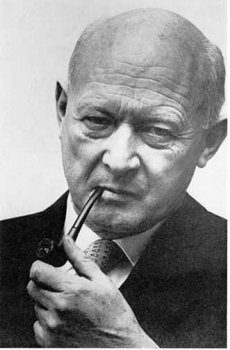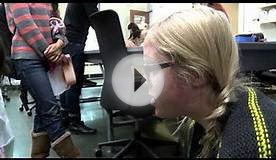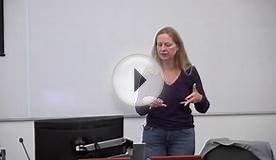Centre for Human Ecology
 At the deeper level, we find that most aspects of life and its interactions with its surroundings are interconnected into complexes. No powerful action can be expected to have only one consequence, confined to the thing it was primarily directed at. It is almost bound to affect lots of other things as well […] We need nowadays to be able to think not just about simple processes but about complex systems… We have found ourselves faced by a series of problems- atomic warfare, the population explosion, the food problem, energy, natrural resources, pollution and so on- each complex enough in itself, but then it turns out that each of these is only one aspect of, as it were, a Total Problem, in which all aspects of the world’s workings are inter-related. This Total Problem is sometimes called the World Problematique.
At the deeper level, we find that most aspects of life and its interactions with its surroundings are interconnected into complexes. No powerful action can be expected to have only one consequence, confined to the thing it was primarily directed at. It is almost bound to affect lots of other things as well […] We need nowadays to be able to think not just about simple processes but about complex systems… We have found ourselves faced by a series of problems- atomic warfare, the population explosion, the food problem, energy, natrural resources, pollution and so on- each complex enough in itself, but then it turns out that each of these is only one aspect of, as it were, a Total Problem, in which all aspects of the world’s workings are inter-related. This Total Problem is sometimes called the World Problematique.
Conrad Waddington, ‘Tools for Thought’
Conrad Waddington (1905-1975) who founded the Centre for Human Ecology at Edinburgh University in 1972 (originally called the School of the Man-Made Future) was a geneticist, biologist, paleontologist, embryologist and philosopher who coined the term ‘epigenetics’ and took a broad, interdisciplinary approach to the study of human ecology.
He introduced important concepts into evolutionary theory, envisaging a mechanism by which Lamarckianism could be incorporated into orthodox Darwinian genetics. He wrote a standard textbook, Principles of Embryology (1956), and also helped to popularize science in such general books as The Ethical Animal (1960).
As well as his scientific work, Waddington took an interest in progressive politics and art. His Behind Appearance (1969) examined the relationship between art and science.
Waddington had been awarded the CBE in 1958, and had been elected a Fellow of the Royal Society of Edinburgh in 1948. He became a foreign member of the American Academy of Arts and Sciences in 1959 and of the Finnish Academy in 1957. In 1974 he had been elected a Fellow of the Deutsche Akademie der Naturforscher Leopoldina in Halle, a scientific academy dating from 1677. From 1934 to 1945, he was elected Fellow of Christ’s College, University of Cambridge. Waddington held honorary degrees from Aberdeen, Dublin, Geneva, Montreal and Prague. He had a long record of publication, from 1939-1970s.


|
Research for the Public Good: Applying Methods of Translational Research to Improve Human Health and Well-being (Bronfenbrenner Series on the Ecology of Human Development) Book (American Psychological Association (APA))
|